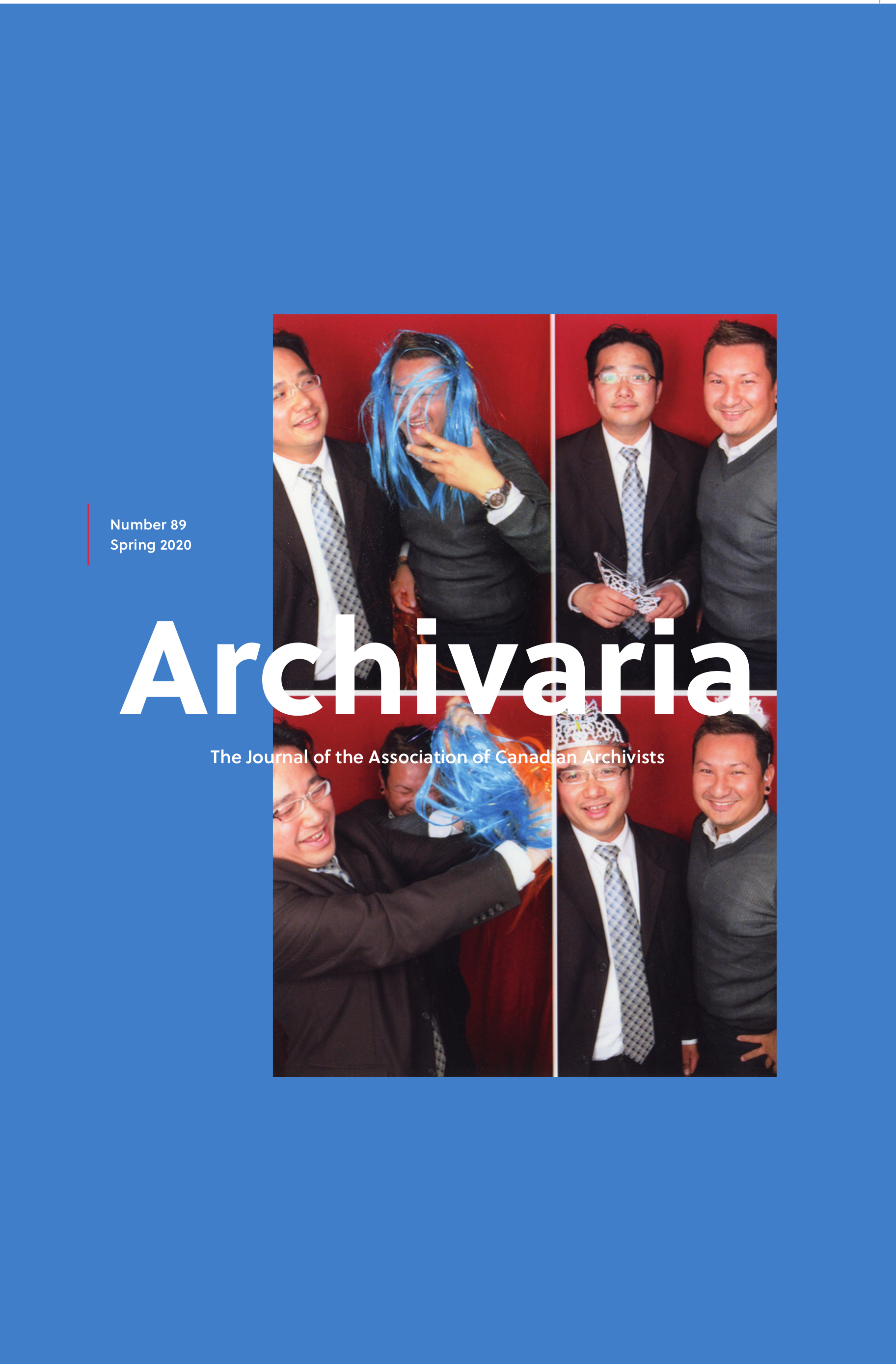Archival Activism, Symbolic Annihilation, and the LGBTQ2+ Community Archive
Abstract
LGBTQ2+ community archives, often founded in the 1970s and 1980s, are no longer necessarily outside the archival mainstream from the perspective of non-white, and non-cis LGBTQ2+ people. Histories of whiteness, settler-colonialism, and cisnormativity within the LGBTQ2+ community archive can create the “symbolic annihilation” of trans and Black, Indigenous, and people of colour (BIPOC) histories within the queer community archive, if left unaddressed. Our current moment requires an active reimagining of what activism means within legacy LGBTQ2+ community, activist archives. This article describes my efforts, as a volunteer and board member at the ArQuives and as the director of the LGBTQ2+ Oral History Digital Collaboratory, to help bring an intersectional, trans-inclusive framework to an LGBTQ2+ community archive with origins in Canada’s gay liberation movement. The Collaboratory is a five-year digital history research collaboration, funded by Canada’s Social Sciences and Humanities Research Council, that connects archives across Canada and the United States to produce a collaborative digital history hub for the research and study of gay, lesbian, queer, and trans oral histories. We have four archival partners: the ArQuives (formerly the Canadian Lesbian and Gay Archives); the Digital Transgender Archive; the Transgender Archives at the University of Victoria; and the Archives of Lesbian Oral Testimony. In this article, I focus on the Collaboratory’s efforts to bring trans visibility to the ArQuives’ collections.
RÉSUMÉ
Les archives de la communauté LGBTQ2+, souvent établies dans les années 1970 et 1980, ne se situent plus nécessairement à l’extérieur des courants archivistiques dominants du point de vue des individus LGBTQ2+ non blancs et non-cis. Les histoires blanches, colonialistes et cisnormatives dans les archives de la communauté LGBTQ2+ peuvent entraîner l’«annihilation symbolique » des histoires des trans de même que des noirs, des autochtones et des autres personnes racisées au sein des archives de la communauté queer si elles ne sont pas abordées. La situation actuelle exige que l’on s’emploie à réimaginer ce que l’activisme représente dans l’héritage des archives militantes de la communauté LGBTQ2+. Cet article décrit mes efforts en tant que bénévole et membre du conseil aux ArQuives et comme directrice du LGBTQ2+ Oral History Digital Collaboratory afin d’encourager l’adoption d’un cadre de travail intersectionnel et inclusif pour les trans dans les archives communautaires de la communauté LGBTQ2+, lesquelles trouvent leurs origines dans le mouvement de libération gaie au Canada. Le Collaboratory est un projet collaboratif de recherche en histoire numérique, subventionné par le Conseil de recherche en sciences humaines du Canada, mettant en contact des archives du Canada et des États-Unis pour créer un centre collaboratif d’histoire numérique pour la recherche et les études des histoires orales des gays, lesbiennes, queer et trans. Nos partenaires sont quatre archives : les ArQuives (anciennement les Canadian Lesbian and Gay Archives), le Digital Transgender Archive, les Transgender Archives à l’Université de Victoria, et les Archives of Lesbian Oral Testimony. Dans cet article, je mets l’accent sur les efforts du Collaboratory pour rendre les trans visibles dans les collections des ArQuives.
Authors of manuscripts accepted for publication retain copyright in their work. They are required to sign the Agreement on Authors' Rights and Responsibilities that permits Archivaria to publish and disseminate the work in print and electronically. In the same agreement, authors are required to confirm that "the material submitted for publication in Archivaria, both in its paper and electronic versions, including reproductions of other works (e.g. photographs, maps, etc.) does not infringe upon any existing copyright." Authors of manuscripts accepted for publication retain copyright in their work and are able to publish their articles in institutional repositories or elsewhere as long as the piece is posted after its original appearance on archivaria.ca. Any reproduction within one year following the date of this agreement requires the permission of the General Editor.





